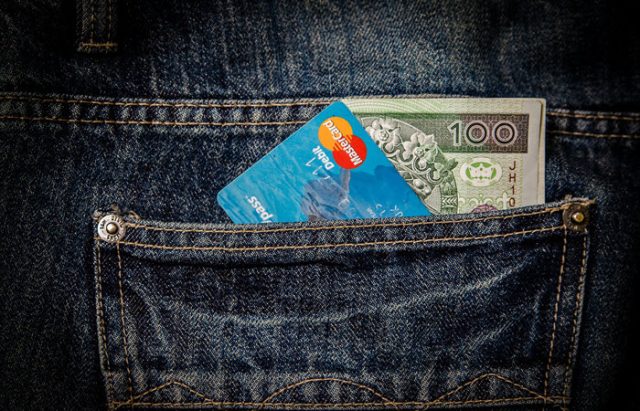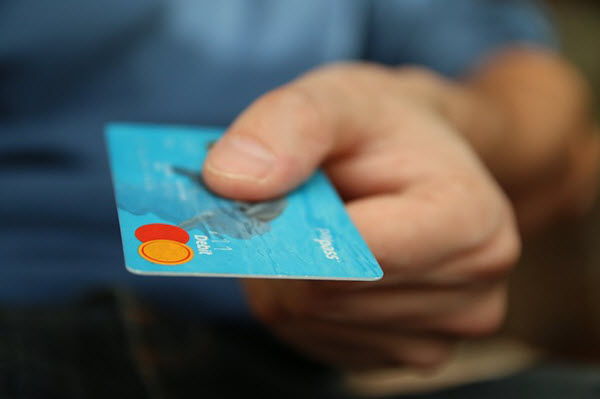Personal Loan vs Credit Card vs Debit Card: When to Use Each
By Barbara Davidson
November 4, 2019 • Fact checked by Dumb Little Man

You’re working hard every day to provide for your family and you’ve got a steady source of income. Frankly, you know you’re doing everything you can to get by, but you’ve also got personal necessities to buy, a pantry to restock, and hungry mouths to feed. The bills just keep piling up every month!
When is the best time to get a personal loan, swipe a credit card or use a debit card to consolidate debt? How do you manage your finances without hurting your pocket too much?
Understanding the differences among these three options will help you confidently manage your expenses and become more financially literate.
Choosing whether to get a personal loan or credit card depends on your spending habits, the status of your credit score, the amount of money you need, and the time it will take for you to repay the debt.
For instance, your credit score highly influences your chances of loans, credit cards, or mortgages getting accepted. It reflects how likely you are to pay back your loan or credit within a certain period. If your credit score is high, your credit card or loan application will likely be approved.
Below is a look at the differences between personal loan, credit card, and debit card, as well as when you can use each of them.
Personal Loan or Credit Card
Getting a credit card sounds like taking out a personal loan. Both types allow you to borrow money and pay it back in a certain period.
You can pay a personal loan in installments. You receive the whole amount and then make fixed monthly payments for a specific period. It can take anytime from 12 months to five years.
Lenders that provide personal loans generally place interest rates that range from 6% to 36%. Borrowers with good credit score, however, may qualify for lower interest rates. The limits of a personal loan can be up to $100,000, depending on the borrower’s credit score.
Meanwhile, a credit card is a revolving form of credit that allows the owner to repeatedly access funds. Unlike a lump sum of cash, a credit card has a credit limit you must abide by. If you choose not to pay it back immediately, you will begin to carry a balance.
The minimum amount of monthly payments is about 2% of the balance. However, if you pay back the credit in full on or before the due date, you can avoid getting charged with interest rates.
The difference here is that a personal loan is a better option for financing a large expense or settling high-interest debts while a credit card is good to use for smaller expenses. A personal loan is a fixed loan that you need to pay back in equal installments for a certain period, while a credit card is a line of credit that you can borrow from at any time. It needs to stay within the credit limit.
When to Choose a Personal Loan
When should you choose to get a personal loan?
If you need to finance large expenses or pay off debts, choosing a debt consolidation loan with fixed payments is the best option. It will even be better if you can get a lower rate on the loan than the rate for the existing debt.
What makes personal loans a good option for borrowing money is that interest rates are low and borrowing amounts can be high, with fixed repayment terms. The rate you receive will depend on your credit score. Your credit history, income, and debt-to-income ratio will also be assessed by lenders.
See Also: Personal Loan Approved? Here’s What To Do Next!
When to Choose a Credit Card

If you need to pay off a smaller amount of debt, a credit card is the best option for you. Since credit cards have higher rates and risks of carrying a high balance, they are best used for short-term purchases that you can pay off in full. This can include daily expenses and monthly bills for gadgets, appliances or furniture.
With credit cards, you can max-out your credit limit, which could keep you stuck in debt. On the other hand, with personal loans, you can be certain that your balance is at a fixed amount. You can’t keep borrowing money unless you’ve already paid off your loan.
See Also: 9 Valuable Credit Card Perks
Credit Card vs Debit Card
What’s the difference between credit and debit? Both debit cards and credit cards are accepted when purchasing in-store and online and they both offer the same convenience. However, the difference between these two cards is the source of the funds.
A debit card is connected to a checking account or savings account. It usually requires a PIN number or signature for every transaction.
When you make a purchase, debit cards draw money directly from your account and place a hold on the amount you purchase. The merchant sends the amount you bought to their bank and it is then transferred to their bank account.
Some people may argue that it’s best to use a credit card because of the credit card reward programs. However, this could only work if you pay off the balance in full every month. If you don’t, whatever amount you borrow will incur interest charges and fees.
Still, using a credit card has its benefits. A credit card is safer to use for online transactions than debit cards because it offers more protection against unauthorized transactions. When travelling, it’s also best to use a credit card for bookings, flights, and hotel accommodations. You could even enjoy travel perks such as air miles, travel assistance, travel insurance, and airport lounge access.
When to Use a Debit Card

If you want to keep your finances in check, it’s best to use a debit card. To make sure that you don’t overdraw your checking account, it’s better to keep a record of your running balance. A debit card isn’t advisable to use when traveling because you may end up short of money for your daily expenses. However, it’s the best option to use when buying small purchases like medicine or groceries.
Whichever of these three options you choose, it’s important to avoid drowning in credit card debt or else, you might experience financial ruin. With that, a debit card with limited balance can help you develop financial discipline and curb bad spending habits. With a debit card, you won’t be spending money that you do not have.







